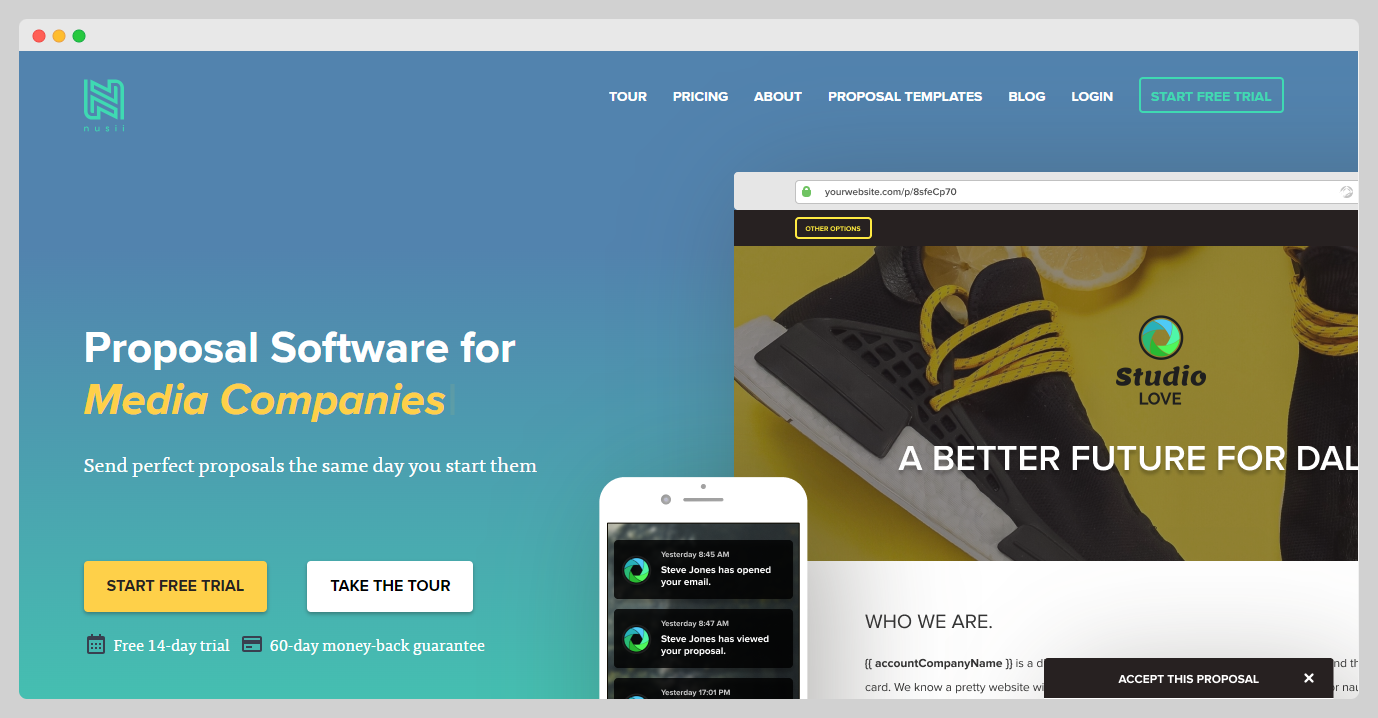How Michael Koper Turned Nusii Into A Profitable Side Project Business
Who is Nathan Powell?
Michael Koper, originally from the Netherlands, is the founder of Nusii and has a background in software development. He first worked for a small startup in Spain, where he met his future co-founder, Nathan Powell. Koper was inspired to pursue his entrepreneurial dreams after reading a book about bootstrapping SaaS businesses and eventually acquired full ownership of Nusii, turning it into his full-time endeavor.
What problem does Nusii solve?
Nusii solves the hassle of creating and managing client proposals for creative businesses, sparing them from tedious document handling and ensuring clients can easily approve with online signatures, all in one place.

How did Nathan come up with the idea for Nusii?
Michael's journey with Nusii began during his time at Cabify, where he was inspired by the book "Start Small, Stay Small" by Rob Walling. This book ignited his desire to create a bootstrapped SaaS product. His co-founder, Nathan Powell, had already developed a rudimentary version of Nusii but needed help with its problematic codebase. Michael saw an opportunity to apply his technical skills and offered to collaborate, leading to the formation of a partnership based on shared ownership.
Disclaimer: The initial draft of this article was compiled by the Starter Story team based on publicly available interviews, podcasts, and other content from the founder. See the sources we used here.

Download the report and join our email newsletter packed with business ideas and money-making opportunities, backed by real-life case studies.

Download the report and join our email newsletter packed with business ideas and money-making opportunities, backed by real-life case studies.

Download the report and join our email newsletter packed with business ideas and money-making opportunities, backed by real-life case studies.

Download the report and join our email newsletter packed with business ideas and money-making opportunities, backed by real-life case studies.

Download the report and join our email newsletter packed with business ideas and money-making opportunities, backed by real-life case studies.

Download the report and join our email newsletter packed with business ideas and money-making opportunities, backed by real-life case studies.

Download the report and join our email newsletter packed with business ideas and money-making opportunities, backed by real-life case studies.

Download the report and join our email newsletter packed with business ideas and money-making opportunities, backed by real-life case studies.









